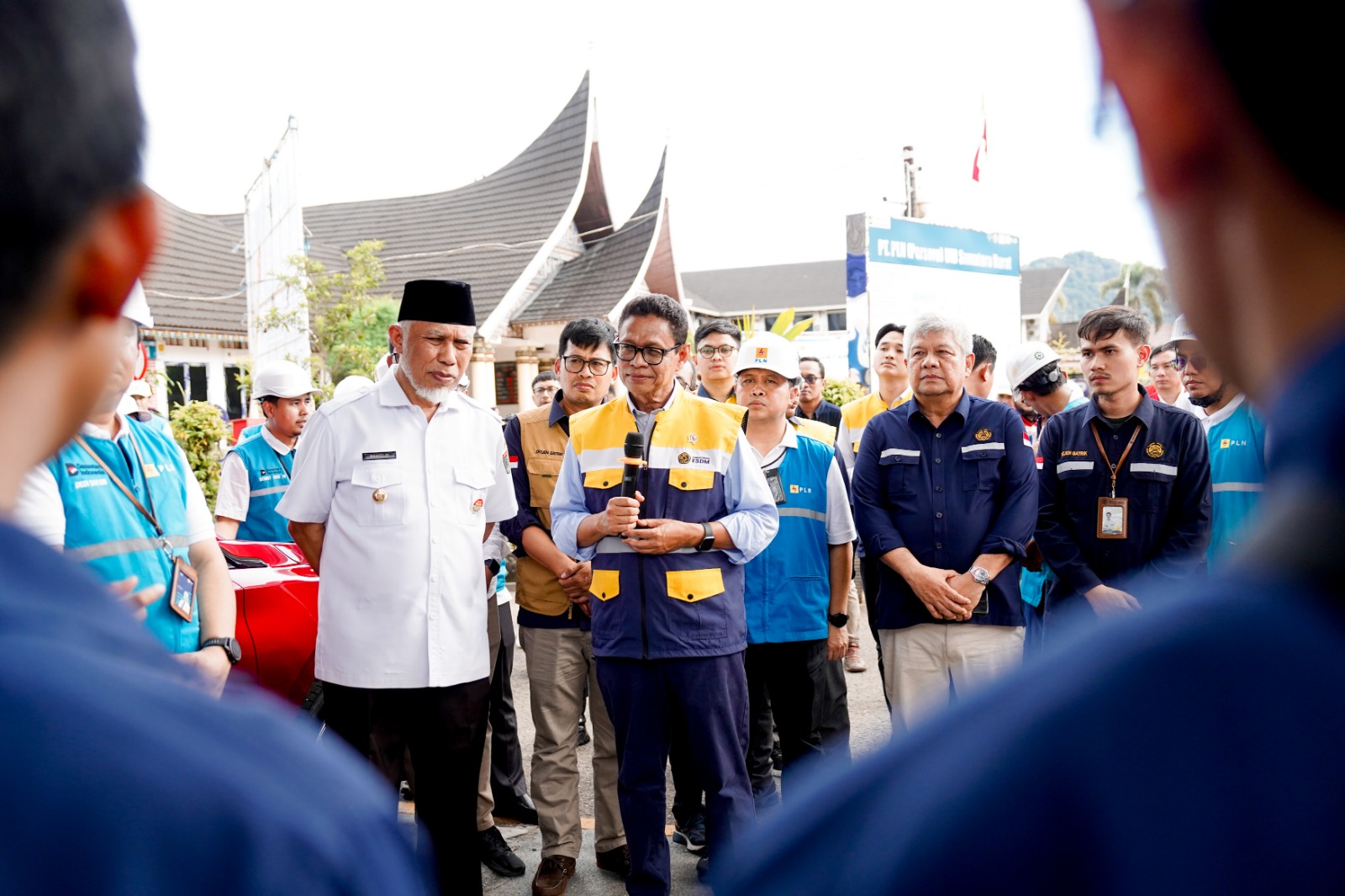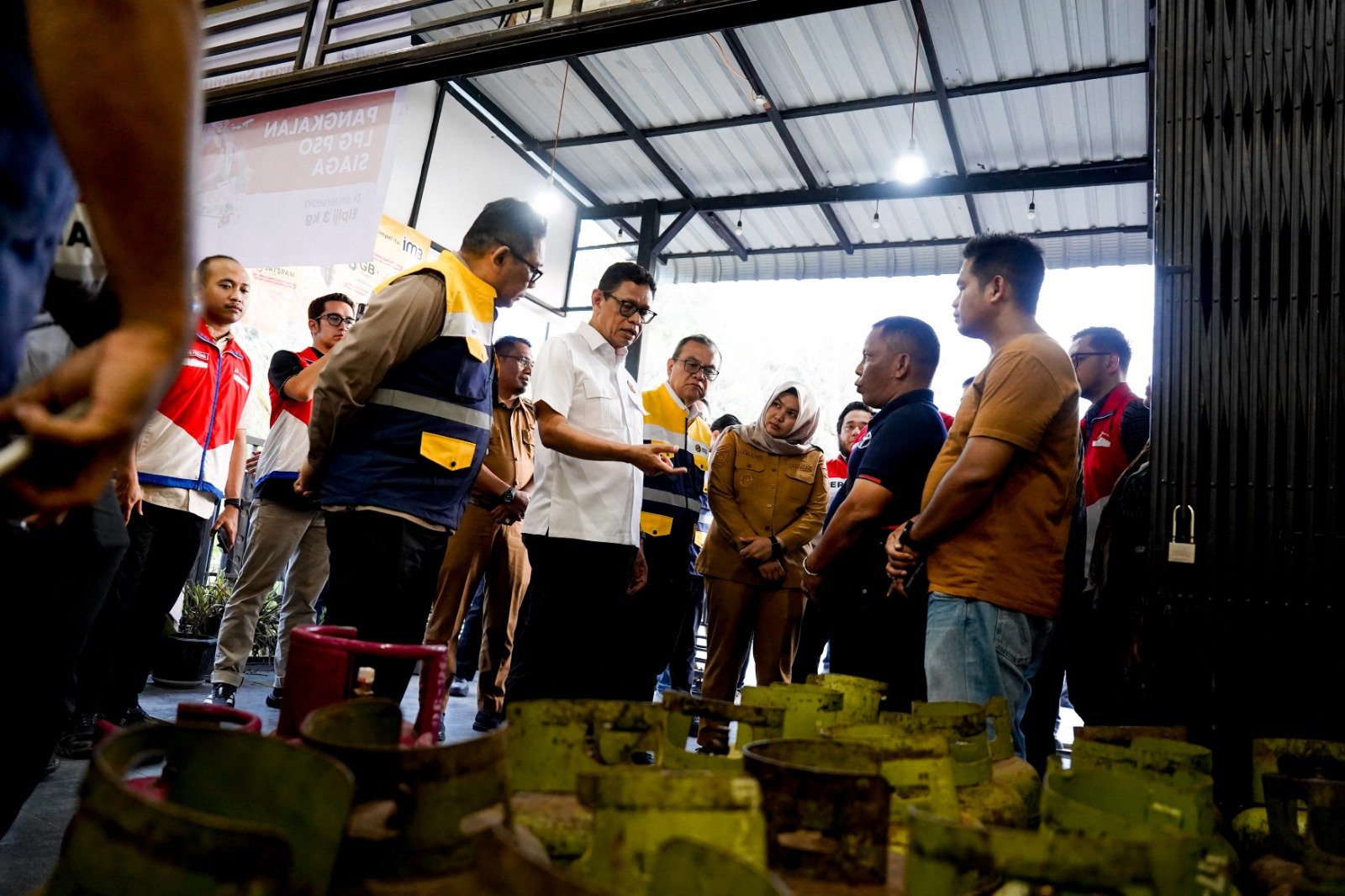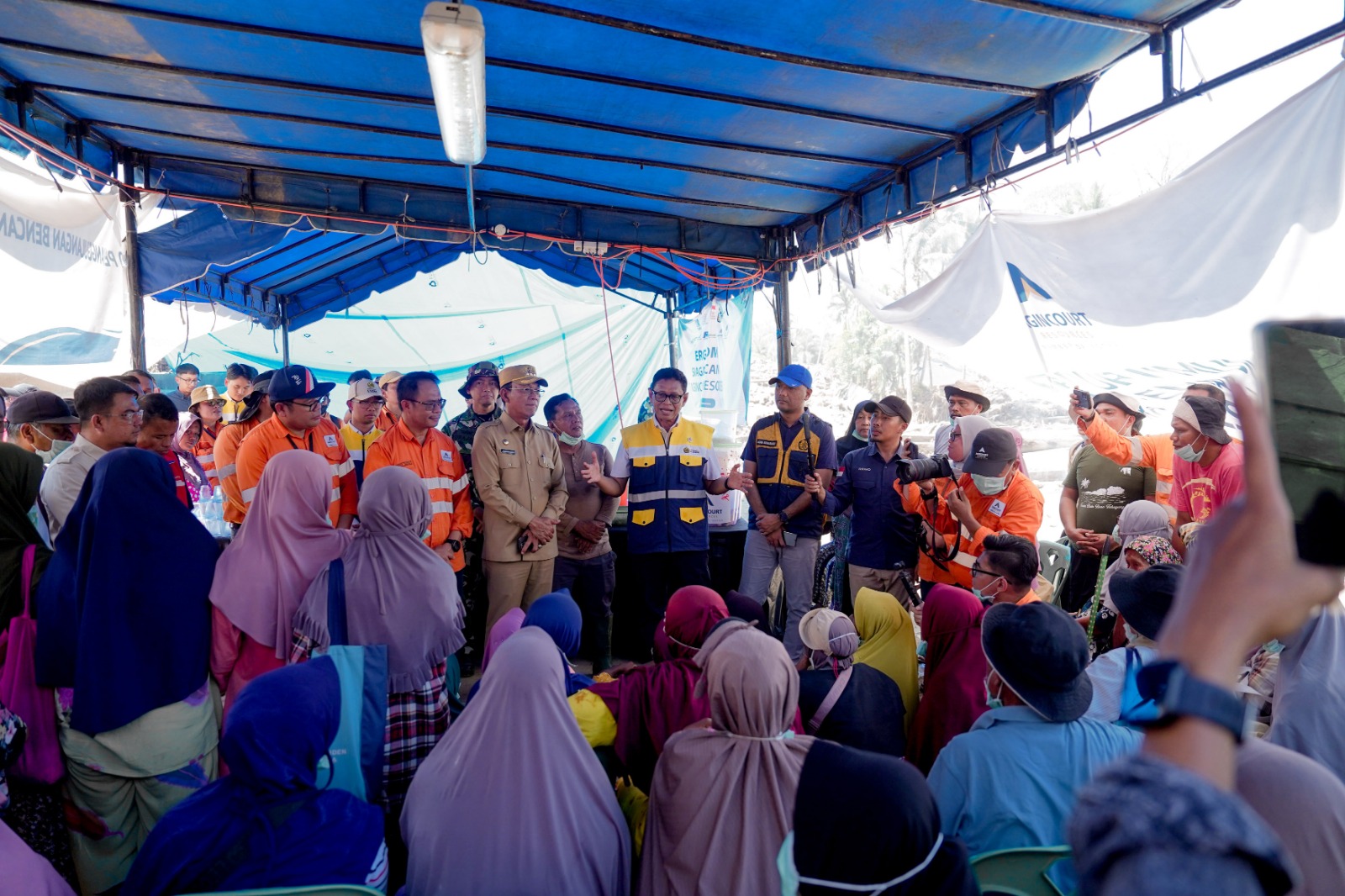
Energy Transition is the Only Option, Says Renewables DG
MINISTRY OF ENERGY AND MINERAL RESOURCES
REPUBLIC OF INDONESIA
PRESS RELEASE
NUMBER: 143.Pers/04/SJI/2021
Date: 27 April 2021
Energy Transition is the Only Option, Says Renewables DG
The Indonesian government is optimistic it will be able to fulfill its commitment to climate change adaptation in the Paris Agreement. Accelerating the energy transition, from fossil energy to new and renewable energy, is believed to help reduce greenhouse gas emissions by 29 percent by 2030 and curb temperature increase of no more than 2 degrees Celsius.
Director General of New, Renewable Energy and Energy Conservation of Indonesian Ministry of Energy and Mineral Resources (EMR), Dadan Kusdiana, said energy transformation vision was in line with the speech of President Joko Widodo at the Leaders Summit on Climate Change on Thursday (22/4) last week.
"The President (Jokowi) last week talked about energy transition. I think there is no other option but to make it a success," said Dadan at the New Energy Conference which was held online on Monday (26/4).
In the last five years, continued Dadan, renewables are considered to have made a significant contribution to electricity, fuel use, and direct utilization. "Renewables are used not only to generate electricity but also as fuels. There are also renewables that do not fall into both categories but are used directly in the form of heat," he explained.
For example, the use of biodiesel as a substitute for fossil fuels has grown threefold in the past five years. Biodiesel came into use in 2008 through a 10% biodiesel mix (B10).
Biodiesel B10 production reached a peak of 3.01 million kiloliters (kl) in 2015. B10 was then increased to B30 with a realized volume of 8.46 million kl in 2020. "We have a good track record. Within five years, we can increase the use of biofuels in the country by three times," said Dadan.
This success has placed Indonesia on the world's biodiesel market as the largest biodiesel producer country, surpassing the United States, Brazil, and Germany. The success has also had an impact on foreign exchange saving of Rp38.31 trillion (USD2.66 billion) in 2020.
In terms of the energy mix of power plants, Dadan said the capacity of renewables power plants had increased by 2 gigawatts (GW) in the last five years. "The figure may not be big, but we can double the target in the future," continued Dadan.
Reflecting on the realization, Dadan is optimistic that the government will be able to realize the 23 percent renewables target in the energy mix by 2025. By the end of 2020, the realization was 11.3 percent.
"Now is the right time. We will multiply the share of renewables in the energy mix in the next five years, especially since we have a record of success," he said.
This target can be met by accelerating the potential for renewables, which are quite complete and spread evenly across Indonesia. "I'd like to remind all entities that we all have strengths. The potential is clear. Everything is available across all regions. Take East Nusa Tenggara for example. Although it's a dry region, but it has wind and solar potential. In fact, solar radiation in East Nusa Tenggara is 1.4 times higher than that in other regions, and this is one of the strengths of East Nusa Tenggara," Dadan concluded. (IY)
Head of Bureau of Communication, Public Information Services, and Cooperation
Agung Pribadi (08112213555)
Share This!






